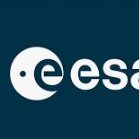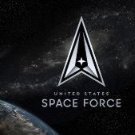Members Can Post Anonymously On This Site
ESA Vision: accelerate the use of space
-
Similar Topics
-
By NASA
NASA researchers are sending three air quality monitors to the International Space Station to test them for potential future use on the Moon.Credit: NASA/Sara Lowthian-Hanna As NASA prepares to return to the Moon, studying astronaut health and safety is a top priority. Scientists monitor and analyze every part of the International Space Station crew’s daily life—down to the air they breathe. These studies are helping NASA prepare for long-term human exploration of the Moon and, eventually, Mars.
As part of this effort, NASA’s Glenn Research Center in Cleveland is sending three air quality monitors to the space station to test them for potential future use on the Moon. The monitors are slated to launch on Monday, April 21, aboard the 32nd SpaceX commercial resupply services mission for NASA.
Like our homes here on Earth, the space station gets dusty from skin flakes, clothing fibers, and personal care products like deodorant. Because the station operates in microgravity, particles do not have an opportunity to settle and instead remain floating in the air. Filters aboard the orbiting laboratory collect these particles to ensure the air remains safe and breathable.
Astronauts will face another air quality risk when they work and live on the Moon—lunar dust.
“From Apollo, we know lunar dust can cause irritation when breathed into the lungs,” said Claire Fortenberry, principal investigator, Exploration Aerosol Monitors project, NASA Glenn. “Earth has weather to naturally smooth dust particles down, but there is no atmosphere on the Moon, so lunar dust particles are sharper and craggier than Earth dust. Lunar dust could potentially impact crew health and damage hardware.”
Future space stations and lunar habitats will need monitors capable of measuring lunar dust to ensure air filtration systems are functioning properly. Fortenberry and her team selected commercially available monitors for flight and ground demonstration to evaluate their performance in a spacecraft environment, with the goal of providing a dust monitor for future exploration systems.
NASA Glenn Research Center’s Claire Fortenberry holds a dust sample collected from International Space Station air filters.Credit: NASA/Sara Lowthian-Hanna Glenn is sending three commercial monitors to the space station to test onboard air quality for seven months. All three monitors are small: no bigger than a shoe box. Each one measures a specific property that provides a snapshot of the air quality aboard the station. Researchers will analyze the monitors based on weight, functionality, and ability to accurately measure and identify small concentrations of particles in the air.
The research team will receive data from the space station every two weeks. While those monitors are orbiting Earth, Fortenberry will have three matching monitors at Glenn. Engineers will compare functionality and results from the monitors used in space to those on the ground to verify they are working as expected in microgravity. Additional ground testing will involve dust simulants and smoke.
Air quality monitors like the ones NASA is testing also have Earth-based applications. The monitors are used to investigate smoke plumes from wildfires, haze from urban pollution, indoor pollution from activities like cooking and cleaning, and how virus-containing droplets spread within an enclosed space.
Results from the investigation will help NASA evaluate which monitors could accompany astronauts to the Moon and eventually Mars. NASA will allow the manufacturers to review results and ensure the monitors work as efficiently and effectively as possible. Testing aboard the space station could help companies investigate pollution problems here on Earth and pave the way for future missions to the Red Planet.
NASA Glenn Research Center’s Claire Fortenberry demonstrates how space aerosol monitors analyze the quality of the air.Credit: NASA/Sara Lowthian-Hanna “Going to the Moon gives us a chance to monitor for planetary dust and the lunar environment,” Fortenberry said. “We can then apply what we learn from lunar exploration to predict how humans can safely explore Mars.”
NASA commercial resupply missions to the International Space Station deliver scientific investigations in the areas of biology and biotechnology, Earth and space science, physical sciences, and technology development and demonstrations. Cargo resupply from U.S. companies ensures a national capability to deliver scientific research to the space station, significantly increasing NASA’s ability to conduct new investigations aboard humanity’s laboratory in space.
Learn more about NASA and SpaceX’s 32nd commercial resupply mission to the space station:
https://www.nasa.gov/nasas-spacex-crs-32/
Explore More
3 min read NASA Studies Wind Effects and Aircraft Tracking with Joby Aircraft
Article 17 hours ago 4 min read Science Meets Art: NASA Astronaut Don Pettit Turns the Camera on Science
Article 1 day ago 1 min read Recognizing Employee Excellence
Article 1 day ago View the full article
-
By European Space Agency
Video: 00:06:15 English
From 7 to 11 April, ESA's Centre for Earth Observation in Frascati, ESRIN, hosted the 2025 edition of ESA School Days, welcoming almost 1400 young students.
The event kicked off with primary school students (4th and 5th grades) visiting during the first three days, followed by secondary school students on the final two days.
Throughout the week, 35 schools from across Italy engaged in presentations and laboratories, delving into the diverse space activities conducted at ESA’s establishment.
This initiative, which included contributions from ESERO Italia and the Italian Space Agency (ASI), aims to inspire and engage the next generation of STEM students by sharing knowledge about space and the European Space Agency.
Italian
Dal 7 all'11 aprile, ESRIN, il Centro per l'Osservazione della Terra dell'ESA a Frascati, ha ospitato l'edizione 2025 degli ESA School Days, accogliendo quasi1 400 giovani studenti. L'evento ha preso il via con la visita degli studenti delle scuole primarie (classi quarte e quinte) durante i primi tre giorni, seguiti dagli studenti delle scuole secondarie nei due giorni finali.
Per tutta la settimana, 35 scuole da tutta Italia si sono cimentate in presentazioni e laboratori, approfondendo la loro conoscenza delle diverse attività spaziali condotte presso lo stabilimento dell'ESA.
L'iniziativa, che ha visto il contributo di ESERO Italia e dell'Agenzia Spaziale Italiana (ASI), mira a ispirare e coinvolgere la prossima generazione di studenti STEM condividendo le conoscenze sullo spazio e sull'Agenzia Spaziale Europea.
View the full article
-
By European Space Agency
Image: This very high-resolution image captures the Egyptian city of Giza and its surrounding area, including the world-famous Giza Pyramid Complex. View the full article
-
By NASA
The space shuttle Discovery launches from NASA’s Kennedy Space Center in Florida, heading through Atlantic skies toward its 51-D mission. The seven-member crew lifted off at 8:59 a.m. ET, April 12, 1985.NASA The launch of space shuttle Discovery is captured in this April 12, 1985, photo. This mission, STS-51D, was the 16th flight of NASA’s Space Shuttle program, and Discovery’s fourth flight.
Discovery carried out 39 missions, more than any other space shuttle. Its missions included deploying and repairing the Hubble Space Telescope and 13 flights to the International Space Station – including the very first docking in 1999. The retired shuttle now resides at the National Air and Space Museum’s Steven F. Udvar-Hazy Center in Virginia.
Learn more about NASA’s Space Shuttle Program.
Image credit: NASA
View the full article
-
By Space Force
U.S. Space Force Chief of Space Operations Gen. Chance Saltzman spoke to hundreds of cadets and national leaders during the 2025 National Conclave for Arnold Air Society and Silver Wings, emphasizing the evolving role of the Space Force in the future fight.
View the full article
-
-
Check out these Videos




Recommended Posts
Join the conversation
You can post now and register later. If you have an account, sign in now to post with your account.
Note: Your post will require moderator approval before it will be visible.